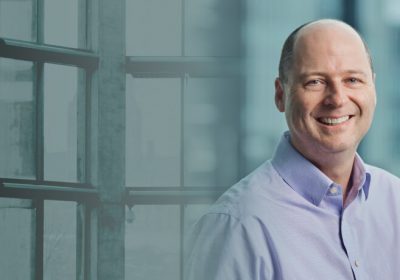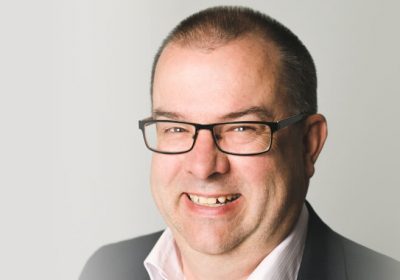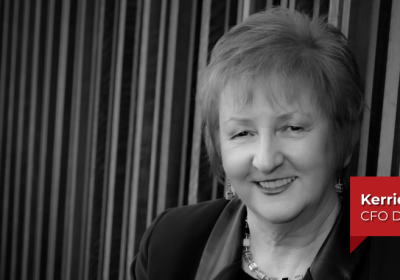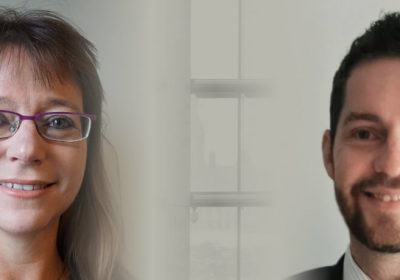
- Author: Johanna Leggatt
- Posted: March 9, 2022
‘Our customers are our shareholders’
Bank Australia CFO Louise O’Brien argues that customer-owned institutions will become the new standard for responsible banking
If Bank Australia CFO Louise O’Brien had to nominate one key difference about working at a customer-owned bank, it would be the lack of concern over the movements of the markets.
“You’re not concerned about your share price because you don’t have one,” she says.
“We don’t have a separate set of shareholders from our customers; our customers, are our shareholders.”
O’Brien, who is a former divisional CFO for ANZ Bank, argues that this singular focus allows for seamless decision making as the question boils down to one key question: is this in the best interests of our members?”
“There are many layers to that question, of course, but because the purpose of the Bank is so clear a lot of that conflict is removed, and decision-making is very transparent,” she says.
“Ultimately, as a CFO you are a business partner, you should be able to put yourself in the shoes of the managing director, or whoever it is, and you need to be thinking slightly ahead of them”
Louise O’Brien, CFO | Bank Australia
THINKING BEYOND PROFIT
It also means, as O’Brien notes, that profit becomes just one factor in what a well-run organisation looks like.
“I think sometimes people describe us as not-for-profit, and that’s certainly not true as we need profit because we need capital to grow,” she says.
“For me personally, what resonates is that we are doing something that people can’t get anywhere else, which is complete control over what their money is being used for.”
Bank Australia prides itself on its ESG credentials: it is member-owned, B Corp Certified, carbon-neutral, doesn’t pay executive bonuses and invests in community housing and projects (while eschewing fossil fuels.)
While Bank Australia may be viewed as a disruptor in the banking world at present, O’Brien believes that financial institutions such as theirs will become the benchmark in coming years.
“We’re seeing more and more organisations starting to talk more about responsible banking and we’re raising the bar,” she says.
One credential in particular — the B Corp Certification, which is awarded to companies with strong and measurable social and environmental commitments — has had a big impact on O’Brien’s role as CFO.
“That B Corp status has given me a new measurement framework,” she says.
“It’s this wonderful, structured way of measuring how well we’re performing against purpose.
“And as a finance person I like to measure things, and it’s almost as if B-Corp has become the accounting standard for purpose.”
Crucially, the B Corp Certification is also a positive way to track growth.
“It allows us to track our progress and see where we’re going and to compare ourselves to those that are more advanced than we are,” O’Brien says.
THE BANKING PATH
O’Brien didn’t set out to becoming a finance leader. Like many CFOs she was a natural at maths, and she went on to complete a commerce degree at The University of Melbourne. But it wasn’t until she started working at the Victorian Department of Treasury and Finance that she experienced a lightbulb moment.
“I just happened to stumble into a team that dealt with managing the state’s debt, and their interest rate risk,” she says.
“Suddenly this whole world opened up to me that I had no idea about.”
The world that O’Brien is referring to was one of strategy: the chance to impact the economics of an organisation through forward-thinking and planning.
“It’s about having an impact moving forward rather than looking back,” she says.
“I love developing models and being able explain how things are going to change in the future, not just what’s happened in the past.”
Her introduction to private sector banking came when she was studying for her Masters of Applied Finance, and the Treasurer from ANZ Bank visited the students for a guest lecture.
“As he spoke I thought, ‘Gosh, this is quite similar to what I’ve been doing in the State Government.
“Maybe I could work for a bank?”
THE ART OF LEADERSHIP
And that is exactly what happened. O’Brien spent 16 years at ANZ Bank, where she worked with “some amazingly talented people”.
She started off in Risk and Reporting and gained high-level finance experience as the Head of Finance in Global Markets, before being promoted to CFO, Europe and US, and COO of Europe.
It was at ANZ, O’Brien says, that she learned not just the technical craft of being an effective CFO, but the skill of leadership.
“I had a string of leaders at ANZ who were fantastic,” O’Brien says.
“A few of them were women, which was great, and they really empowered me.
“They didn’t molly-coddle me or protect me, but they gave me the confidence to go out and try things, but they had my back, so to speak, and acted like a sounding board when needed.”
O’Brien is equally grateful to a sage piece of advice she received from a colleague: you should always be working yourself out of your job. Essentially, she notes, it refers to the importance of sharing your knowledge with your team so you can spread your wings.
“It means that when that next thing comes along you can put your hand up for it because you can hand over to the team with confidence,” she says.
“The reverse of that is somebody who feels like they need to protect their patch, which is self-defeating.”
However, there is a limit to saying yes to opportunities.
“The risk is that you keep putting your hand up for challenges, but you’re not well-resourced,” she says.
“People remember when something goes wrong, but people won’t remember that you had two people and you really needed five.
“So you have to have the confidence to say, ‘I’m capable of doing this, but I will need X to deliver it otherwise I can’t do it’.”
Perhaps the best advice O’Brien can give to other finance leaders is to make sure they know the business inside out.
“Ultimately, (as a CFO) you are a business partner, you should be able to put yourself in the shoes of the managing director, or whoever it is, and you need to be thinking slightly ahead of them,” she says.
“Your aim is to work out which bits they need to know and how to present it in such a way that helps them make decisions.
“You have to be in their brain.”








